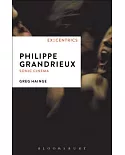Béla Bartók (1881-1945) was one of the most important composers and musical thinkers of the 20th century. His contributions as a composer, as a performer and as the father of ethnomusicology
changed the course of music history and of our contemporary perception of music itself. At the center of Bartók’s oeuvre are his string quartets, which are generally acknowledged as some of the
most significant pieces of 20th century chamber music.
The String Quartets of Béla Bartók brings together innovative new scholarship from 14 internationally recognized music theorists, musicologists, performers, and composers to focus on
these remarkable works from a range of theoretical and methodological perspectives. Focusing on a variety of aspects of the string quartets-harmony and tonality, form, rhythm and meter,
performance and listening-it considers both the imprint of folk and classical traditions on Bartók’s string quartets, and the ways in which they influenced works of the next generation of
Hungarian composers. Rich with notated music examples the volume is complemented by an Oxford Web Music companion website offering additional notated as well as recorded examples.The String
Quartets of Béla Bartók, reflecting the impact of the composer himself, is an essential resource for scholars and students across a variety of fields from music theory and musicology, to
performance practice and ethnomusicology.





















